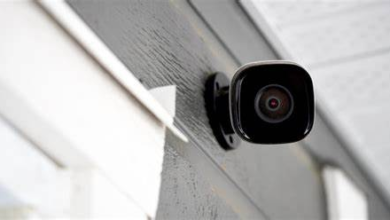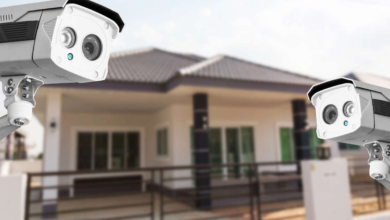How to Protect Your Crypto Wallet from Scammers

Cryptocurrencies have become an essential part of the digital financial landscape, and with their increasing popularity, the risk of scammers targeting your crypto wallet has also risen. Protecting your digital assets is crucial. In this article, we will explore effective strategies to safeguard your crypto wallet from scammers.
Understanding the Importance of Crypto Wallet Security
Your crypto wallet is your gateway to the world of digital currencies. It’s where you store, send, and receive cryptocurrencies. As such, ensuring its security is paramount. Falling victim to a scam can lead to the loss of your hard-earned assets.
Types of Crypto Wallets
Cryptocurrency wallets come in various forms, each with its own set of features and security levels. Understanding the different types of wallets is crucial for protecting your digital assets. Here are the main types of crypto wallets:
- Hardware Wallets: These are physical devices designed to store your cryptocurrencies offline. They are considered one of the most secure options as they are immune to online hacking attempts. Hardware wallets resemble USB drives and are known for their robust security features.
- Software Wallets: Software wallets are applications or software programs that you can install on your computer or smartphone. They are user-friendly and convenient, making them a popular choice for beginners. However, their security depends on the device they are installed on and the user’s online practices.
- Online Wallets: Online wallets, also known as web wallets, are hosted on the cloud by third-party providers. They are accessible from any device with an internet connection, offering convenience but potentially exposing your assets to online threats.
- Mobile Wallets: These are a subset of software wallets designed specifically for mobile devices. Mobile wallets provide on-the-go access to your cryptocurrencies and are usually user-friendly. However, securing your mobile device is crucial when using this type of wallet.
- Desktop Wallets: Desktop wallets are software programs installed on your computer. They provide a higher level of security compared to online and mobile wallets because your private keys are stored locally. However, if your computer is compromised, your wallet could be at risk.
- Paper Wallets: A paper wallet is a physical document that contains a public address for receiving cryptocurrency and a private key for spending or transferring funds. These are entirely offline and immune to online threats. However, keeping the paper wallet safe from physical damage or loss is essential.
- Multi-Signature Wallets: Multi-signature wallets require multiple private keys to authorize a transaction. This enhances security, as it means that even if one key is compromised, your assets remain safe. They are often used by businesses and individuals with large holdings.
- Mobile Wallets: Mobile wallets are similar to software wallets but are designed for smartphones. They are convenient for managing your cryptocurrencies on the go. However, the security of your mobile device is crucial when using these wallets.
- Desktop Wallets: Desktop wallets are software programs installed on your computer. They offer a higher level of security compared to online wallets because your private keys are stored locally. However, they are still vulnerable to computer-related security risks.
- Paper Wallets: Paper wallets are physical documents that include a public address for receiving cryptocurrency and a private key for spending or transferring funds. These are entirely offline and highly secure, but it’s essential to protect the physical document from loss or damage.
- Multi-Signature Wallets: Multi-signature wallets require multiple private keys to authorize a transaction. They offer enhanced security, as it ensures that even if one key is compromised, your assets remain safe. These wallets are often used by businesses and individuals with significant cryptocurrency holdings.
- Brain Wallets: Brain wallets rely on the user’s ability to remember a passphrase. While they are convenient, the security of your assets depends entirely on the strength of your passphrase.
Understanding the differences between these wallet types is vital for choosing the one that best suits your needs and helps protect your cryptocurrencies from potential scams and theft.
Read More: The Future of Blockchain Technology
Best Practices for Securing Your Crypto Wallet
Use Hardware Wallets for Maximum Security
Hardware wallets are physical devices that store your cryptocurrency offline, making them immune to online threats. Consider investing in a reliable hardware wallet for maximum security.
Keep Your Private Keys Safe
Your private keys are like the keys to your bank account. Keep them in a secure location, away from prying eyes and potential scammers. Never share them with anyone.
Enable Two-Factor Authentication (2FA)
Adding an extra layer of security with 2FA can significantly reduce the risk of unauthorized access to your crypto wallet.
Beware of Phishing Attempts
Scammers often use phishing websites and emails to trick you into revealing your wallet information. Double-check website URLs and only open emails from trusted sources.
Use Reputable Wallet Apps
When using software wallets, only download apps from reputable sources like official websites or app stores. Avoid third-party apps with unknown origins.
Regularly Update Your Wallet Software
Wallet developers often release updates to address security vulnerabilities. Make sure to keep your wallet software up to date to protect against known threats.
Avoid Public Wi-Fi for Transactions
Public Wi-Fi networks are often insecure, making them prime targets for hackers. Conduct crypto transactions on trusted, private networks.
Protect Your Recovery Seeds
Protect Your Crypto Wallet: Recovery seeds are vital for regaining access to your wallet in case you forget your password or lose your hardware wallet. Store them securely, preferably in a physical form.
Stay Informed About Scams
Educate yourself about the latest scams and threats in the crypto world. Awareness is your first line of defense.
Keep Your Wallet Recovery Information Offline
Protect Your Crypto Wallet: Storing your recovery information offline in a secure place ensures that even if your digital wallet is compromised, you can recover your assets.
Read More: NFTs and investing: What are the risks and opportunities?
Conclusion
In the world of cryptocurrencies, safeguarding your crypto wallet from scammers is not just an option; it’s a necessity. As digital assets become increasingly valuable, they become a prime target for unscrupulous individuals looking to exploit any vulnerabilities in the system. Protecting your investments should be a top priority, and following the best practices we’ve discussed in this article can go a long way in ensuring the security of your crypto wallet.
Remember, understanding the importance of crypto wallet security is the first step. Your wallet is the gateway to your digital financial world, and losing access to it can result in devastating losses. Whether you’re using a hardware wallet for maximum protection or a software wallet for convenience, the core principles of security remain the same. Keep your private keys safe, enable two-factor authentication, stay vigilant against phishing attempts, and keep your wallet software up to date.
By adhering to these best practices and remaining cautious, you can significantly reduce the risk of falling victim to scammers and fraudulent activities. Your digital assets are valuable, and it’s your responsibility to protect them.
FAQs
How can I tell if a wallet app is reputable?
To ensure the credibility of a wallet app, download it from the official website or trusted app stores like Google Play or the Apple App Store.
Why is hardware wallet security superior?
Hardware wallets are offline, making them immune to online threats such as hacking and phishing.
What should I do if I suspect a phishing attempt?
If you suspect a phishing attempt, do not click on any suspicious links or provide any personal information. Verify the source and delete any suspicious emails.
Is it necessary to update my wallet software regularly?
Yes, updating your wallet software is crucial as it often includes security enhancements that protect your assets from potential threats.
How can I recover my assets if I lose my hardware wallet?
If you lose your hardware wallet, you can recover your assets using the recovery seeds you should securely store offline.







